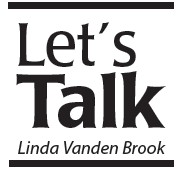A number of years back during a meeting of area professionals, the facilitator asked us to share with the group a favorite quote or saying. I recall scrambling to think of something clever when out of my mouth popped the words, “Don’t go into the rapids without a paddle.” To this day, I have no idea where the words came from, but I have used and shared them over and over again in my therapy practice and in my own life.
Mental health, like physical health, requires daily hygiene. As with river rafting, we are at the mercy of the force of the water and the nature of the riverbed. In life there are times when no matter what we do or practice, and no matter how strong or adept we are, life can flip us over and take us under. But, through gaining some basic skills and a “good paddle,” we are better able to navigate and, at times, prevent mental and physical disaster.
As humans, we have high expectations of our minds, bodies and spirits. We somehow think that we should be cruising at top performance without regular maintenance. Frequently we are surprised when our bodies ache or act up when we feel spiritually bereft or when we fall into a deep “funk” or experience our first anxiety or panic attack out of the blue.
Our minds, bodies and spirits are inexorably intertwined. The good news is that when we practice methods of self-care in any one area, it benefits the other two. For example, having some sort of spiritual connection has been proven to help heal physical and emotional disturbance. Practicing a regular exercise and nutrition regimen (proven to help prevent and reduce physical ailments) can also prevent and/or ameliorate depression and anxiety. Frequently, my clients who maintain healthy mental health practices also report fewer physical complaints and are better able to access a sense of connection with their spiritual practice and being.
These are some easy and helpful mental health hygiene tools that we can use to help prevent and/ or reduce negative mental health symptoms. Practice and use often:
Practice a daily infusion of humor. Make laughter an integral part of the day.
Develop meaning in your life: Give frequently and bountifully of loving thoughts, prayers, calls, texts, and time.
Write down negative thoughts and then turn them around. Use the positive thoughts as your mantras.
Be open to change. Life’s current can change on a dime. Practice flexibility. An inflexible mind is brittle; it tends to easily break.
Maintain healthy fulfilling relationships. Weed out ones that aren’t. Your garden will flourish.
Eliminate alcohol and/ or drug abuse or addiction.
Accompany all the above with physical activity. You must move the body. The paddle must be accompanied by your strength. Without you, it is ineffective. Attend yoga, Zumba, or tai chi, for example.
*Persistent mental health issues may require a mental health evaluation or medical intervention.
Each month a local mental health therapist will discuss an area of mental health. This week’s contributor is Linda Vanden Brook, MA, Licensed Marriage and Family Therapist, The 4 Directions therapy, Grand Marais, www.vandenbrooktherapy.com.



Loading Comments